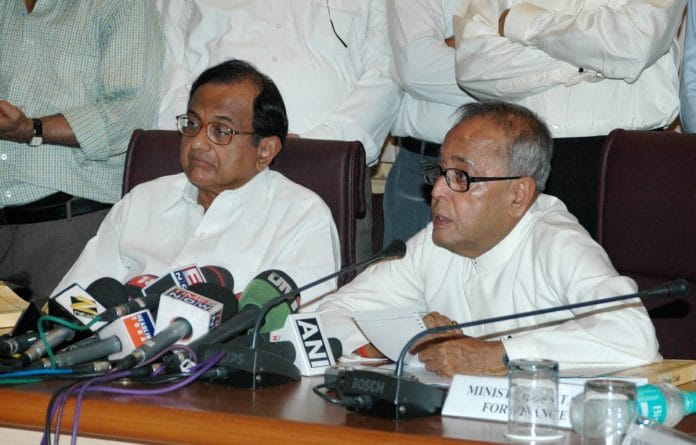Pranab Mukherjee and P. Chidambaram were both finance ministers in the UPA government but their economic perspectives were radically different. If veteran Mukherjee was a statist who believed in a controlled regime, Chidambaram was pro-liberalisation and pro-markets. Mukherjee writes as much in his latest book ‘The Coalition Years (1996 – 2012)’ – published by Rupa Publications and released on 13 October.
Edited Excerpts:
Chidambaram made directional change in budget in United Front
Chidambaram entered politics much later than I did, but I had worked with him between 1991 and 1995 when he was the commerce minister in P.V. Narasimha Rao’s Cabinet. However, he did not complete the full five-year term in that government as he had to resign due to some allegations of financial irregularity, which were never substantiated. Thereafter, he left the party and formed the Tamil Maanila Congress in 1996.
As finance minister in the United Front government, Chidambaram presented two budgets, in 1996–97 and 1997–98. He made a directional change in the budgetary exercise and his second budget was described by industrialists, taxpayers, and others as a ‘dream budget’.
Inflation rose, growth, job creation fell after ‘dream budget’,
Unfortunately, the dream budget did not remain so. Though it did not exactly morph into a nightmare, in the course of the year it was found that many of the projections of revenue receipts and expenditures were off the mark and did not conform to targets that were taken into account while preparing budgetary calculations. Consequently, there was a decline in the rate of growth and employment generation, coupled with rising inflation.
Also read: History will be kind to Manmohan Singh: Pranab Mukherjee
Be that as it may, Chidambaram set a trend and gave a new direction to the Indian taxation system by drastically reducing the rates of taxation from excessively high levels to reasonably low levels. His analysis of the economic situation within India and outside was pragmatic, professional and acted as the guide to future policymakers.
I was conservative, Chidambaram is pro-liberalization, pro-market
Chidambaram has presented second highest number of budgets in the country after a record 10 by former Prime Minister Morarji Desai. He is intellectually sharp and well-informed, though he sometimes appears to be arrogant because of his very strong convictions and style of presentation.
Much has been talked about differences between Chidambaram and me. I will say that any differences that there might have been, were due to our differing perspectives on the economy. While I was conservative and believed in reforms as a continuous process and favoured an inclusive and gradual transformation of the economy—a controlled regime. He is a pro-liberalization and pro-market economist—a good example of this is the retrospective tax proposal, which we shall discuss later.






